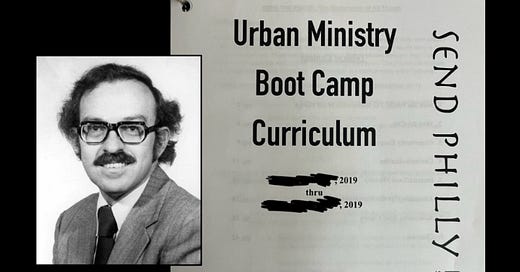The influence of woke ideologies in the Southern Baptist Convention and their potential impact on new congregations in the denomination
The Southern Baptist Convention (SBC), once known for its unwavering commitment to biblical truth, has been increasingly influenced by woke ideologies in recent years. Despite the warnings and concerns raised by some, this influence continues to slowly creep into SBC churches, potentially affecting congregations and their understanding of the gospel.
In this article, The Baptist Report explores one example of this influence and its implications for Southern Baptists.
The SBC is no stranger to controversy. Over the years the denomination has debated various theological and social issues. The rise of woke ideologies within the convention has been particularly concerning among many SBC leaders. Recent SBC entity leaders like Russell Moore, past president of the Ethics and Religious Liberty Commission, and pastors like David Platt and Matt Chandler have been associated with pushing Critical Race Theory (CRT) and other woke social justice narratives. CRT has even been found in some SBC seminary teaching and curricula.
What’s perhaps more troubling is that an entity funded by the SBC has included information in church planting training materials that promote a brand of Marxism.
“Send Philly” Curriculum
An example of this influence is the “Send Philly” curriculum and training manual, which surfaced from the North American Mission Board event held in 2019. The curriculum, which has been making its rounds recently on social media outlets like X/Twitter — while addressing important issues of urban ministry and outreach — reveals a departure from biblical principles.
Among those quoted in the “Send Philly” materials are the late Ron Sider, a prominent liberal Christian theologian and social activist, who has significantly influenced discussions around social justice within Christian circles. While Sider’s work resonates with many Christians passionate about addressing societal inequalities and advocating for justice, theological conservatives believe that Sider’s emphasis on social justice and economic equality overshadows core theological doctrines such as salvation, sin, and redemption.
Here are some key points to consider from the material:
1. Critical Race Theory and Social Justice Narratives
The content of the “Send Philly” Urban Ministry Boot Camp curriculum manual draws directly from Critical Race Theory and social justice narratives. These ideologies focus on societal structures, collective guilt, and systemic oppression — all of which conflict with the Bible’s emphasis on individual sin and redemption.
2. Obsession with the “Marginalized”
While caring for the oppressed and needy is a biblical mandate, the NAMB curriculum seems to shift the focus to a secular understanding of oppression. It categorizes individuals based on socioeconomic status, ethnicity, and worldly metrics. Instead of addressing spiritual needs, it promotes a message of social reform and systemic restructuring.
3. Twisting Scripture
In one section, the material discusses “marginalized peoples” in the context of Matthew 25:31-46, a favorite biblical reference of Sider. However, the interpretation of Scripture used in the curriculum prioritizes social identity and earthly justice over spiritual regeneration and heavenly justice. Jesus is portrayed more as a social reformer than as the Savior from sin — a misrepresentation of His mission and the gospel.
4. Venturing into Political Territory
Additionally, the “Send Philly” curriculum delves into areas like systemic racism, environmental oppression, and modern-day slavery. These terms carry political connotations and are rooted in a worldview that sees “systemic sin” as the root of societal evils. The curriculum’s activism aligns more with leftist political thought than pastoral ministry or evangelism.
Resources and Accountability
What’s concerning is that these woke ideologies are funded by the tithes and offerings of churchgoers who may be unaware of the theological shift within the SBC to embrace these ideas. Southern Baptists should view their contributions as offerings to God to further His kingdom and Christ’s mission, not for advancing a secular agenda in a Christian evangelical setting. The misplacement between financial stewardship and theological direction raises serious questions about accountability within the SBC.
How Should Southern Baptists Respond?
Southern Baptists entrust entities like the North American Mission Board to use their tithes and offerings appropriately to further Christ’s ministry of reconciliation (2 Corinthians 5:18). However, accountability is required, and it is important to prayerfully consider if the agenda of these entities is to win souls or appease today’s culture.
The infiltration of woke ideology through church planting training programs like “Send Philly” reveals a troubling trend that appears to be an attempt to restructure how SBC churches understand their mission of the gospel.
As Southern Baptists meet for their annual meeting in Indianapolis June 11-12 perhaps some of these important issues can be addressed in a substantive and meaningful way.





Could you please post some info on the "Calvinism belief" that is creeping into some of the Baptist denominations? thank you